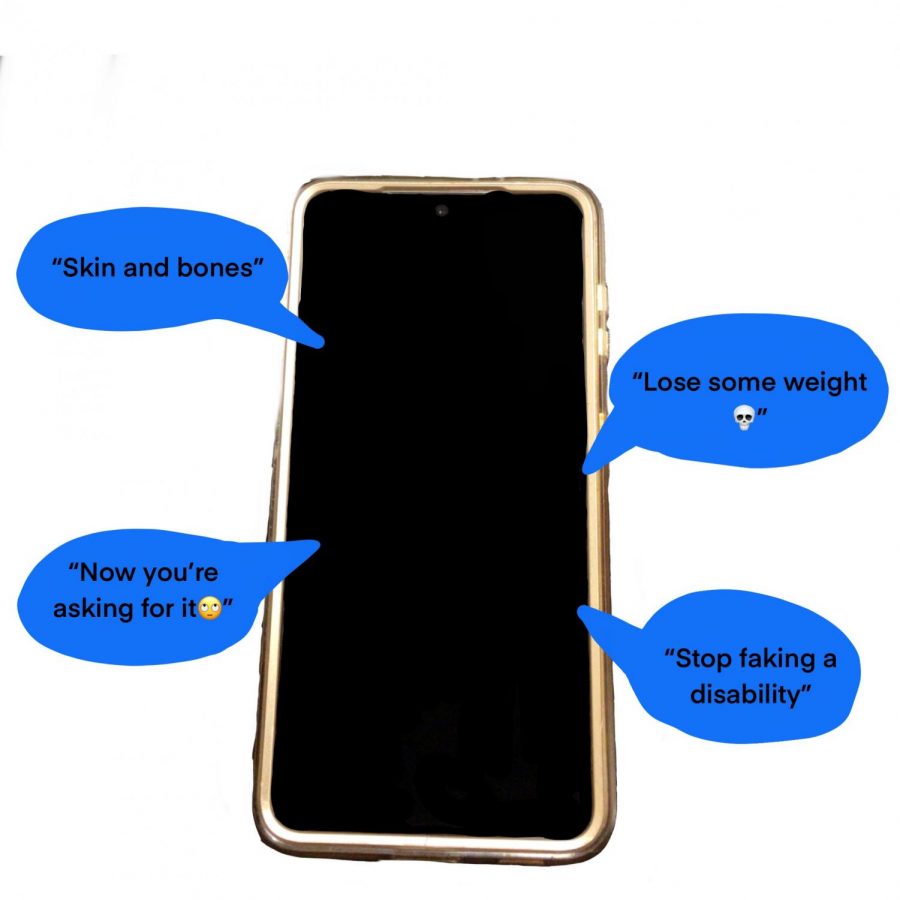Social Media Is Often Socially Mean
November 5, 2021
Social media has a major impact on everyone’s lives, but is it a positive impact or a negative one?
If women aren’t skinny, then they’re obese. But, if they’re skinny, they’re considered anorexic–and that’s not healthy. If women show too much skin, they’re asking for it. But, if they show none, then they aren’t confident in themselves. If women show vulnerability, they are attention seeking. But, if they hold it in, then they are said to have no emotions.
If women show themselves eating, they are considered hogs for eating too much, but as soon as they stop, people assume they have an eating disorder. “I haven’t really been criticized, but I don’t post that often,” confides Abigail Stack, a sophomore. “I have seen mean comments before, though,” she adds. Stack often sees other people being put down in the comment section of different social media apps.
All of these aspects can affect mental health in a negative way. People always say they don’t let what others say get to them, but when millions of people are commenting on their appearance or their political views, it gets hard to not take what people say to heart. Trying to please everyone is impossible, and its overwhelming when people personally attack others for just being themselves. “Social Media doesn’t affect me too much, but I’m not famous, so I don’t get as many comments,” Stack continues. “If I were famous, I think my mental health would decline.” Social media can be harsh to not only ordinary people but also to the celebrities who everyone knows and loves.
Suicide is a major problem, not only in the United States but also everywhere around the world. Although there were “only” 47,511 suicides in 2019 in the United States, there were over 1 million attempts. Each one of those people is suffering and going unheard. On top of that, social media is likely making them feel worse about themselves. They are drowning themselves in everyone else’s thoughts, believing every hateful word spilling out of people’s mouths. “When people don’t like me, I simply don’t talk to them,” Stack states, “but sometimes their words still hurt, and then I think about what they say for a long time.” It’s hard not to hear what people say–especially when it’s negative.
Although there are some beneficial aspects to social media–such as being able to contact with friends and seeing everything going on around the world–the negative influences outweigh the good. People ignore the fact that they are commenting on living human beings with feelings. The end result is that, mentally, people begin to think they aren’t good enough…that they are worthless. Physically, they start trying to alter their appearance in unhealthy ways because the internet creates unrealistic beauty standards. Social media is supposed to be a positive influence, not a negative one. But, what is as opposed what is supposed to be are not at all the same.








